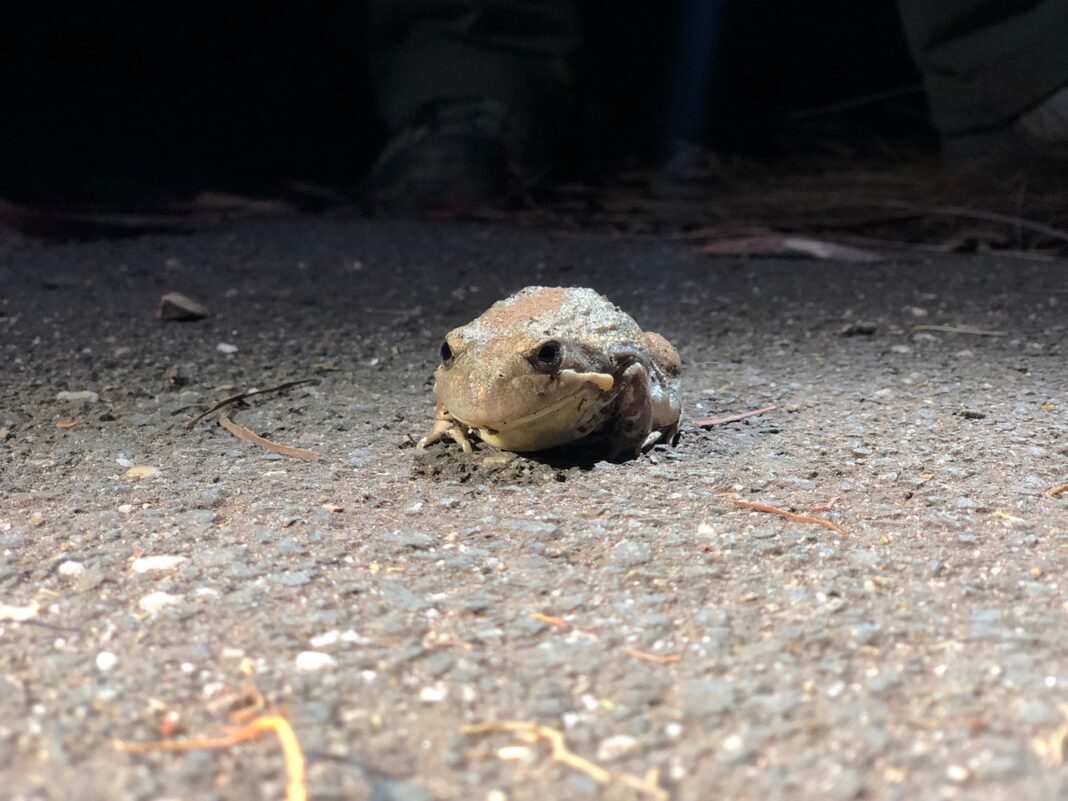The future of frogs has been labelled as the largest mass extinction since dinosaurs by conservationists – and a local Canberra program is hoping to make all the difference.
The ACT Region FrogWatch is back and calling on all citizen scientists to take part in the annual event, asking volunteers to observe the amphibians in their habitat across the Territory.
ACT Region FrogWatch coordinator Anke Maria Hoefer said a number of factors were putting the croaky creatures at risk.
“We are destroying their habitats and building more houses, the Darling Basin doesn’t have enough water or great water quality, and then there is climate change,” she said.
“Then there is an amphibian sickness called chytrid fungus which has been around since the 1970s. It lives in the water and when the frog who has been sick gets in the pond, it spreads.
“The frog gets lethargic; they can’t hunt for food and they become prey, or they die of what is essentially a heart attack. That has caused mass extinction.”
The ACT Government-sponsored event started in 2002 and usually sees around 250 to 300 volunteers take part.
It used to run across one week in October but has now been extended for the whole month for more accurate observations of the amphibians in their habitat.
Ms Hoefer said no previous experience was required from volunteers, as they were just asked to come to one seminar before signing up.
“There are around 200 sites in the ACT and surrounding region, and we have a buddy system, so you go out with someone else,” she said.
“People can sign up to essentially adopt one or as many sites as they want and the requirement is they monitor that site twice in October in the first three hours after dark.
“They go out and observe the habitat then they hand in the data and a three-minute sound recording of the pond.”
Ms Hoefer said the program had helped to better understand frog species as well as change policy surrounding conservation.
“This grassroots program helps us understand and protect frog species and it would not exist without citizen science,” she said.
“We have even started seeing species that we have never seen in the ACT entering the state due to the changing climate. The Rocky River frog, usually found in NSW, is being found in peri-urban ACT.”
To get involved, you can sign up to attend a survey online.



